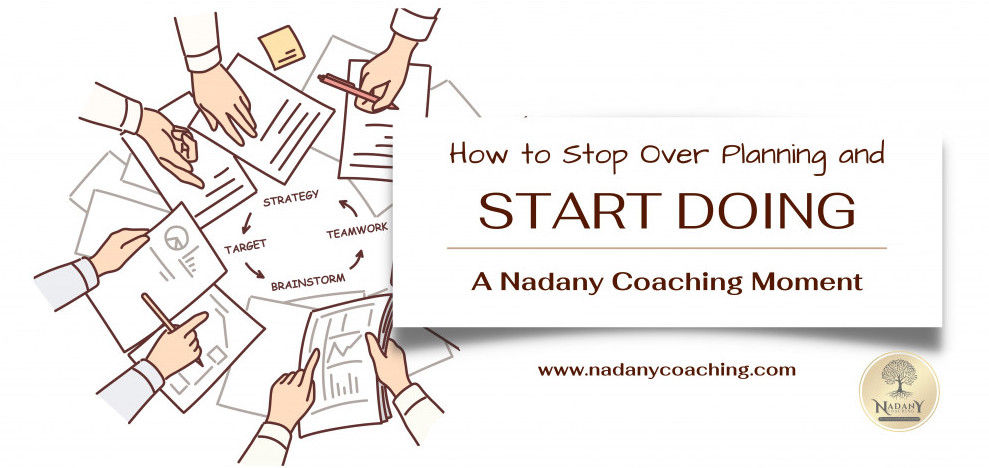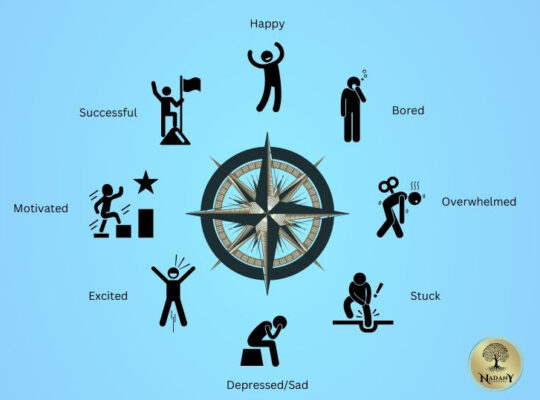
How to Stop Planning and Start Doing
If you are anything like me then you may be really super good at planning things out to the letter. However, you may have also noticed that although great at planning, your execution rate is lacking somewhat. Sometimes I plan so much, I end up going to bed from brain exhaustion before even getting to action out anything. Here are some tips to help break the cycle and get from planning to doing.
What is Planning?
Planning refers to the process determining steps and actions that can be taken to achieve a desired outcome. It is a word many are familiar with and often used in context to school, family goals or work. It can entail using skills such as brainstorming, research, reflection, among others to them be assimilated to come up with action plans.
What are the Benefits of planning?
One of the useful benefits of planning is that it helps distinguish between the usefulness of certain information or tools from non-useful ones. Having a solid plan helps simplify aspects of what needs to be done so one’s attention is centered on clear actions and check points which helps with mindfulness and reducing stress. Obtaining desired results from a well-executed plan helps increase self-confidence and happiness. A well-organized plan increases the odds of success.
Procrastination Explained
Procrastination can be defined as consciously or even at time sub-consciously avoiding acting even when you know it can yield negative consequences. It is the act of postponing or delaying doing something voluntarily that you know needs to be done.
Signs of Procrastination
There are many signs of procrastination as each person may have their own way of procrastinating. Therefore, the signs listed below are only a few you may recognize.
Not Having Unclear Goals -Clear goals helps us achieve goals, so not taking the time to clarify your goal and or make them specific is an indicator that you may be giving yourself a way out of doing something.
Feeling overwhelmed– Feeling overwhelmed, defensive or feeling anxious when people ask you about your progress can be an indicator you are aware you are not where you know you should be with an endeavor.
Allowing yourself to be distracted by everyone else’s projects and validating it to yourself as a good reason to not take care of your own responsibilities.
Getting easily bored or having difficulty concentrating in particular when you come to do a particular activity.
Fear of Failure. This one is a little more psychological and that is procrastination based on negative belief systems or being afraid of failure. These can be profoundly debilitating without the right support to overcome them.
This a very small list however taking time to identify your signs of procrastination can go a long way in stopping it before it gets out of hand.
Benefits of Procrastination
You may find this section strange for this type of article; however, I feel it important to look at the point that people tend to do things they get something out of. In the same line of thought when someone procrastinates it may be because the immediate gratification of procrastinating outweighs the benefit of doing the unwanted act. Those benefits may include but are not limiting to the good feelings that come from watching your favorite TV program, going out with friends, a (false) sense of control, a (rebellious) sense of (false) power over a situation.
If someone is often hasty in their approach to tasks, then some procrastination can allow for reflection on how to be more efficient. Moderate procrastination can reduce stress by giving you time to think things through allowing for more creative room.
In my case, procrastinating was only helpful as deadlines approached. Sometimes it was only the fear of failure or screwing up that could motivate me to get something done and that fear would only kick in as deadlines approached. So, I would wait until the fear adrenaline would kick nearing deadlines and plow through the need for food, sleep, socializing, showering with the help of energy drinks, coffees and sugar and get the job done. The job was complete. Great! The aftereffects, not so great. My body would then need a day or two to recover from the abuse.
How to Recognize When Planning is Disguising Procrastination?
Now that we have a basic understanding of what planning is and what procrastination is, how do we recognize when our need to plan or rather over plan, which can also lead to over analyzing as well, is really procrastination? At what point should the planning part stop or pause and progress to the doing part? Here are some suggestions:
- Planning no longer feels productive.
- Obsessing over the details of the plan repeatedly versus getting to the work.
- Answer the question for yourself, are you planning to clarify or are you planning to avoid doing something? Be honest with yourself.
- Observe the times when you find you are skipping over the times you planned to do something. Skipping over scheduled activities would then cause you to go to rewriting the plan…again.
- You are more focused on perfecting the plan than executing it.
Tips to Get Doing
- Understand that planning is useless with the doing part.
- Before starting the planning part, do a mini brainstorming session part that involves determining how much time you have to complete your project or goal, then allocate an appropriate amount of time to the planning portion and the execution part. And the most important part of this is to then stick to the allocated time by setting up alarms if need be.
- Once you start the “doing” part, keep moving. Do not look back, tweak as you go.
- Identify the benefits that would come out of getting the task done. Connect with the good feelings that you would experience when the task is complete and redirect your thoughts to that better feeling outcome as often as needed until the task is complete.
- If your procrastination is as a result of being overwhelmed, get to know your limits by reflecting on past situations when you felt the same or similar feelings. Consider learning to say “No” once those boundaries are reached. It may initially feel awkward to say no. No may feel you are letting people down, however, consider the quality of the work you would now be able to do with a clear mind, less stress and done in a timely manner.
- Take time for self-care. I cannot stress how important this is. Over the last decade or more there has been a push in the health and social industry to inform people of the value and importance of self-care. In this article I am going to try to keep if geared to its impact of over planning and procrastination.
How Self-Care Helped Reduce Over Planning Procrastination
What I am about to explain is something I have witnessed in myself, my children, my friends and even my co-workers. I was more likely to neglect my work or procrastinate fulfilling my responsibilities when I felt unappreciated, overworked an in particular when I felt I had no time for myself. You could even say I sort of resented doing things for others in those moments, even though my job was normally a source of joy for me, when tired it felt more like I was working for “THE ENEMY” than for the well-being of me and my family.
The reality is healthy, happy Natalie, loved doing her job. She loved pushing limits. She enjoyed leading and teaching, but at times I resented it and my thoughts could get pretty low and I would start dodging very important tasks.
I realized I did not like the feeling of my work back logging as a result of my procrastinating and I was really good at planning things out…. Actually, too good at it. I took time to understand the cause of my negative feelings and traced it back to me not having time to breathe, to enjoy the fruits of my labor.
The solution? Scheduling in time for me. Once I made the decision, I stood by it. Although I was initially scared to execute it, people were actually very receptive and over time were happy I had done it. As my quality of life improved, so did the quality of my work. My mind was clearer, ideas flowed freer, and I was able to execute my work in a more effective and timely manner.
The Takeaway
Put your focus on progress instead of perfectionism. Any step in the right direction is better than not taking any steps. When planning, focus on what is your control. Delegate the areas of your plan to the appropriate persons who can execute the plan more effectively than you. Even though all the’ out of your control elements’ are not delegated, we can agree that the reduced list is still more manageable than the initial loaded one. The goal is to achieve your goal, reduce the stress of and likelihood of procrastination.
I hope this helps and adds value to your journey.
Love and light are being sent your way.


